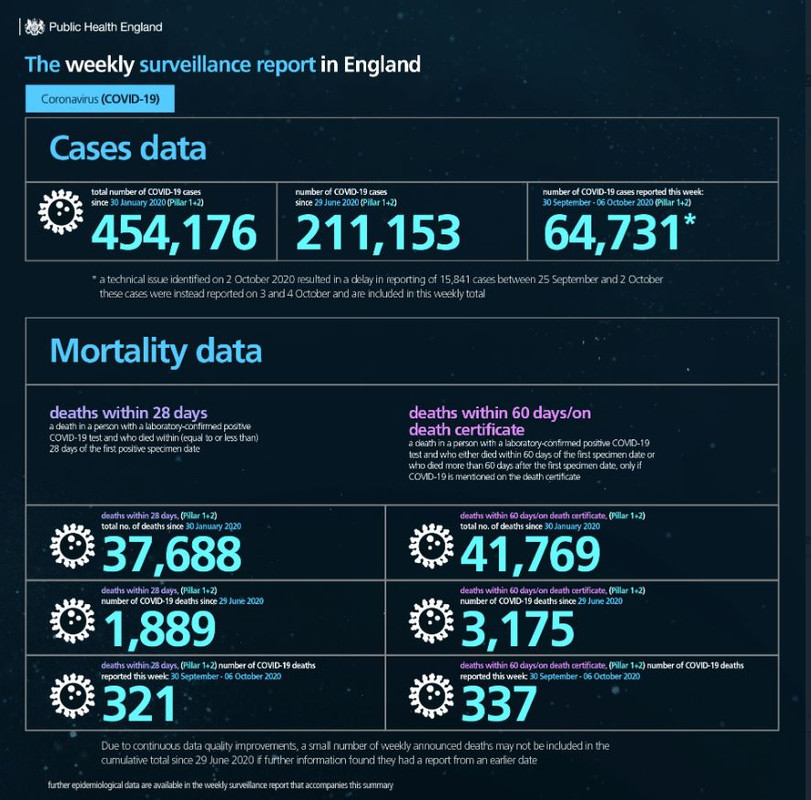Cheshire Cat
Landlord.
87 I think

87 I think

True true - most will be fine - but looking at some early research from my wifes long covid group, about 1 in 1000 (this estimate will be wrong!) will get 'long covid' - my wife is still very ill and unable to look after the kids or drive 6 months later. This time last year she was just turning 40, exercising 5 days a week and running loads of groups for school etc. Now she can only just about make it to the sofa some days.Average age for someone passing away from Covid is 82 years old.
7000 university students tested positive, not a single fatality and I doubt every one of them are slim, fit and healthy.
Average age for someone passing away from Covid is 82 years old.
7000 university students tested positive, not a single fatality and I doubt every one of them are slim, fit and healthy.


Which is why the scales were changed because otherwise the charts would have been meaningless.On covid I love the changing of scales that has gone on in the governments reporting:
View attachment 33923
Note the scale used in the colouring end of Sept (dark red was more than 45 cases per 100000)
View attachment 33924
Magically the scale changes, if they were using the old scale the country would be a sea of deep red...

Do you think the current scale gives a good indication of the risk relative to a week ago?Which is why the scales were changed because otherwise the charts would have been meaningless.


How many of those people were obese or had other conditions that made them vulnerable, a lot of very fat people in the US.It takes 28 days on average for someone to die of Covid, of course you're not going to be seeing any deaths from universities yet.
I read less than 10 were hospitalised
Also :
https://www.ama-assn.org/delivering...g-adults-hospitalized-covid-19-face-hard-roadThe researchers used a national all-payer hospital database to identify 3,222 nonpregnant adults aged 18–34 who were admitted to U.S. hospitals for COVID-19 between April 1 and June 30. Of those, 21% required intensive care, 10% required mechanical ventilation and 2.7% died.
“This in-hospital mortality rate is lower than that reported for older adults with COVID-19, but approximately double that of young adults with acute myocardial infarction,” (heart attack)...
a rise in the percentage of positive tests in [the 20-39] age group was followed by a rise in positive test results in adults 60 years and older in the ensuing days and weeks.
How many of those people were obese or had other conditions that made them vulnerable, a lot of very fat people in the US.
If they were vulnerable they should be isolated. ....leading to deaths from untreated patients with other illnesses?
The alternative which is shielding all vulnerable people and exposing the less vulnerable people to the virus and gain herd immunity.
waiting for a vaccine that may never come into fruition?
We need to also think about the poverty the wrecked economy will lead to.



If there is no lasting immunity, then we need to understand that we will just have to live with the virus and it's consequences, as, by definition, there will be no magic bullet of a vacation. The purpose of a vacation to provide immunity.If there's no lasting immunity to SARS2, then your strategy will have killed millions of people for nothing.
Enter your email address to join: